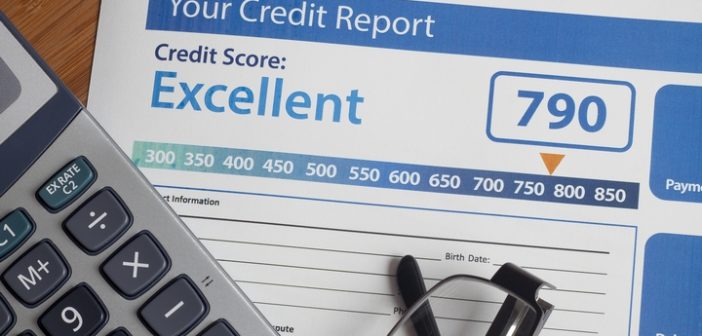When your credit score is down or has taken a hit, it can take months of financially responsible behaviour to remedy that. Improve your credit score today with all of these easy, fast ways to do so. Anyone can achieve a high credit score through careful bad credit loan management and debt structuring, consistently paying down balances on schedule, and getting current on all debts owing.
Here are our top ten tips on how to get a high credit score:
1. Get your credit report
 The first step towards achieving a high credit score is knowing what you’re working with. Receive and analyze your credit report. There are different ways to do so and free of charge, such as through Equifax. Take the time to look it over thoroughly and highlight anything suspicious. Sometimes, banks, lenders, and credit companies make mistake. If dates don’t match or if anything’s off-putting, call who you need to call to address it.
The first step towards achieving a high credit score is knowing what you’re working with. Receive and analyze your credit report. There are different ways to do so and free of charge, such as through Equifax. Take the time to look it over thoroughly and highlight anything suspicious. Sometimes, banks, lenders, and credit companies make mistake. If dates don’t match or if anything’s off-putting, call who you need to call to address it.
2. Understand how your credit score is built
 Credit scores are influenced by five things. Payment history has sizeable influence on your credit score, comprising of 35 percent of it, and amounts owed make up 30 percent. Between both, there’s a lot of control a person has over how to get a high credit score quickly. Beyond these, length of credit history makes up 15 percent, how much credit activity you have makes up 10 percent, and the type of credit – i.e. auto payments, mortgage loans, personal loans, and more – make up the remaining 10 percent.
Credit scores are influenced by five things. Payment history has sizeable influence on your credit score, comprising of 35 percent of it, and amounts owed make up 30 percent. Between both, there’s a lot of control a person has over how to get a high credit score quickly. Beyond these, length of credit history makes up 15 percent, how much credit activity you have makes up 10 percent, and the type of credit – i.e. auto payments, mortgage loans, personal loans, and more – make up the remaining 10 percent.
3. Pay every bill on-time
 A history of late payments is problematic. That said, time’s on your side if you’ve got bills to pay and money to cover it. Never make a late payment again. Sign up for online payments or automatic withdrawals if need be. Keep close track of your savings, income, and spending. Whatever you need to do to pay your bills on-time, get it done. After several months of this, improvement in your credit score will be noticeable.
A history of late payments is problematic. That said, time’s on your side if you’ve got bills to pay and money to cover it. Never make a late payment again. Sign up for online payments or automatic withdrawals if need be. Keep close track of your savings, income, and spending. Whatever you need to do to pay your bills on-time, get it done. After several months of this, improvement in your credit score will be noticeable.
4. Focus on your credit card
 Credit cards carry high interest, among the highest in financial services. Pay down your credit card, on-time and in full. Any high-interest cards should be tackled first. Again, on-time payment are important. By eliminating credit card debt, you will quickly see gradual monthly boosts in score, by lowering overall debt, lowering your balances, and making payments faster and consistently.
Credit cards carry high interest, among the highest in financial services. Pay down your credit card, on-time and in full. Any high-interest cards should be tackled first. Again, on-time payment are important. By eliminating credit card debt, you will quickly see gradual monthly boosts in score, by lowering overall debt, lowering your balances, and making payments faster and consistently.
5. Do not open any new credit accounts
 If your credit’s suffering, you shouldn’t open up any new credit accounts as that’ll only lead to taking on more debt. It might seem like an excellent short-term solution to getting more money however statistically speaking, it’s only going to lead to issues down the line trying to pay it off. By minimizing the amount of active credit and loan accounts you have, you’ll keep your credit heading upwards.
If your credit’s suffering, you shouldn’t open up any new credit accounts as that’ll only lead to taking on more debt. It might seem like an excellent short-term solution to getting more money however statistically speaking, it’s only going to lead to issues down the line trying to pay it off. By minimizing the amount of active credit and loan accounts you have, you’ll keep your credit heading upwards.
6. Pay off any collections activity
 Equal in importance to paying down your credit card as a top priority is to pay off collections activity. Collections activity is a huge hit on your credit score and even after paid off, the information will remain on-file for years. No matter what you do, it’s best to avoid collections activity but if you already have activity going on, you’ve got to pay it off immediately.
Equal in importance to paying down your credit card as a top priority is to pay off collections activity. Collections activity is a huge hit on your credit score and even after paid off, the information will remain on-file for years. No matter what you do, it’s best to avoid collections activity but if you already have activity going on, you’ve got to pay it off immediately.
7. Eliminate all late payments later than 30 days
 If you absolutely have to make a late payment and it’s unavoidable, as is sometimes the case, don’t let a late payment go longer than 30 days. Most lenders and creditors won’t report a 30-day late payment to credit bureaus. That said, if it goes past 30 days, you’re in trouble.
If you absolutely have to make a late payment and it’s unavoidable, as is sometimes the case, don’t let a late payment go longer than 30 days. Most lenders and creditors won’t report a 30-day late payment to credit bureaus. That said, if it goes past 30 days, you’re in trouble.
8. Avoid high credit utilization on your credit card
 Credit users overspending and not watching their account balances create a problematic situation. Your credit score will receive heavy penalties, if you’re carrying credit cards with high balances. Credit card balances should never exceed 30 percent of your available credit.
Credit users overspending and not watching their account balances create a problematic situation. Your credit score will receive heavy penalties, if you’re carrying credit cards with high balances. Credit card balances should never exceed 30 percent of your available credit.
9. Never get rid of your oldest credit card
 The longer you’ve had a credit card opened for, the more value it has on helping your credit score increase. If you’re cutting cards or closing credit accounts, never bury your oldest. Credit bureaus lower your credit risk if you’ve stayed with a single creditor for a long period of time. This helps to build your score, fast and also gradually over time.
The longer you’ve had a credit card opened for, the more value it has on helping your credit score increase. If you’re cutting cards or closing credit accounts, never bury your oldest. Credit bureaus lower your credit risk if you’ve stayed with a single creditor for a long period of time. This helps to build your score, fast and also gradually over time.
10. It takes time
 How to get a high credit score does not happen overnight. It’s important to have realistic expectations on how fast it’s going to take to improve your score. There is no snapping of the fingers and everything’s better. It takes time to demonstrate financial responsibility. The credit system itself is based off punishment rather than charity. Keeping that in mind, it takes a lot of work but the benefits of getting your credit score high is tremendous. No matter how far down your credit score might be, don’t be discouraged – you can always come back.
How to get a high credit score does not happen overnight. It’s important to have realistic expectations on how fast it’s going to take to improve your score. There is no snapping of the fingers and everything’s better. It takes time to demonstrate financial responsibility. The credit system itself is based off punishment rather than charity. Keeping that in mind, it takes a lot of work but the benefits of getting your credit score high is tremendous. No matter how far down your credit score might be, don’t be discouraged – you can always come back.




